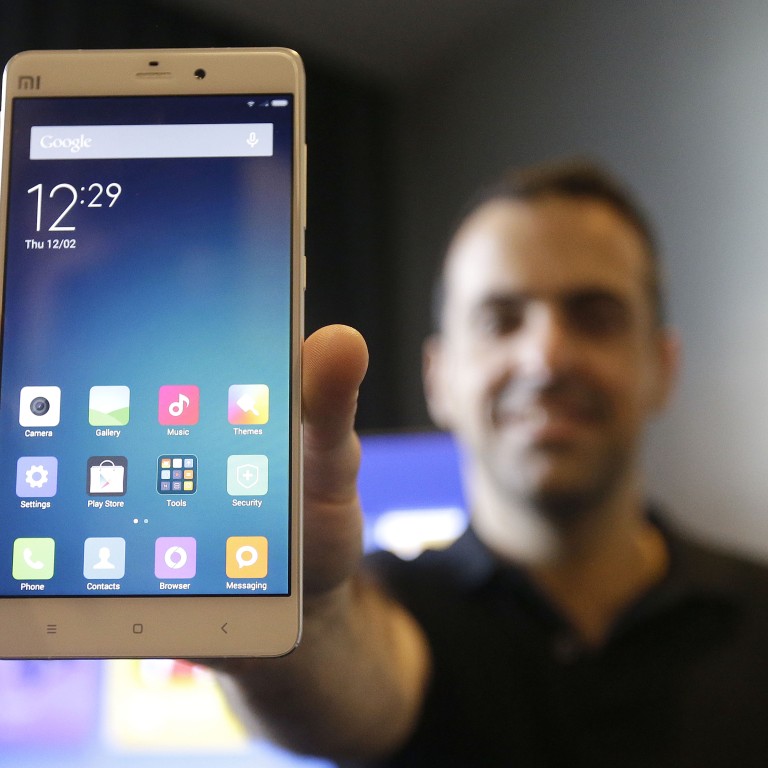
Xiaomi coming to US and Europe, but no smartphones yet due to 'patent gap'
Xiaomi's biggest challenge in selling its cheap but hugely popular smartphones outside China may not be winning the hearts and minds of international customers but how to manage potential intellectual property legal challenges.
“Many different aspects of smartphones are patented, and even Apple and Samsung get into patent disputes,” said Lei. “The fight for intellectual property is a rite of passage in the process of a smartphone company's growth.”
The fight for intellectual property is a rite of passage [for smartphone companies]
Asked when the company will bring its smartphones – hugely popular with Chinese consumers thanks to their combination of low price and high quality – to the US and Europe, Lei said: “We would like to take things step by step.”
Xiaomi, like many other Chinese technology firms, has a somewhat mixed reputation overseas due to its perceived habit of copying foreign innovations and designs – such as the look and feel of Apple's iPhone – and then selling such "clones" for incredibly low prices. Analysts have warned that Xiaomi may struggle to expand overseas due to the so-called "patent gap" between it and its more established rivals.
Beijing-based Xiaomi has faced a number of lawsuits surrounding patent and intellectual property infringements. In India, where the company does offer its low price smartphones, a judge recently ordered an injunction against Xiaomi after telecom equipment marker Ericsson complained, curtailing explosive growth in one of the biggest developing markets.
Lei’s remarks on Wednesday echoed those of his colleague Hugo Barra, Xiaomi's global vice president and a former senior executive at Google. Barra said at session the Mobile World Congress in Barcelona on Tuesday that Xiaomi would not be selling smartphones in Europe anytime soon. However, he said the Chinese company did plan to sell other gadget products in Europe and other international markets.
Industry analysts expect Xiaomi to sell the health and fitness Mi Band, headphones, earphones, and portable battery charging devices in United States and Europe. Such a move to sell non-smartphone products is widely seen as brand-building, a pre-cursor to unleashing high-end low-cost phones to bigger and more lucrative markets.
Ian Fogg, an analyst at IHS Technology, said Xiaomi is clearly looking to expand internationally.
“The growth of online retailing in Europe also helps Xiaomi because online direct to consumer sales have been a key part of Xiaomi's previous international expansion in Southeast Asian markets,” he said.
Bryan Wang, a Beijing-based analyst for Forrester, said: "Getting into Europe will help Xiaomi capture opportunities markets such as France and Germany where we are seeing increasing demand for the 'value-for-money' smartphone devices."
He added that Xiaomi would be aiming to build relationships with telecom operators and distributors in Europe, who may also have footprints in Middle East and African countries.
“We increasingly see ourselves as a lifestyle brand and we think that being…in the [United States], the world’s biggest trendsetting market makes perfect sense,” Barra, the Brazilian-born computer scientist added during his high-profile appearance at Mobile World Congress in Barcelona.
Additional reporting by James Griffiths

